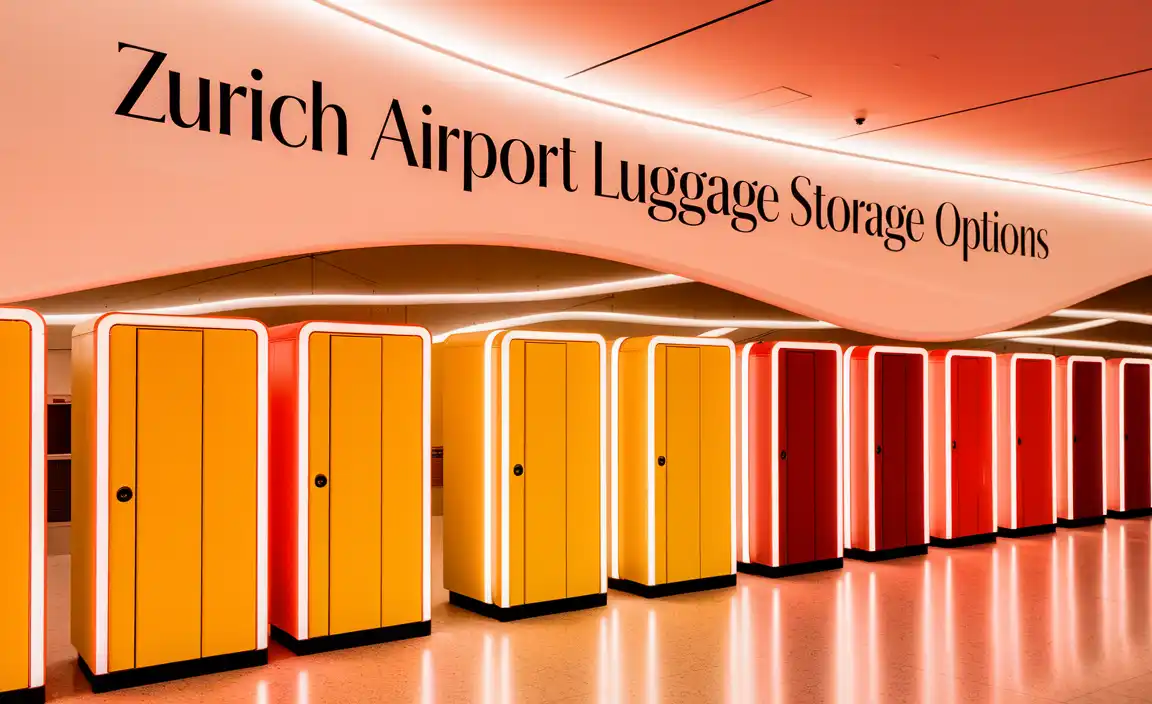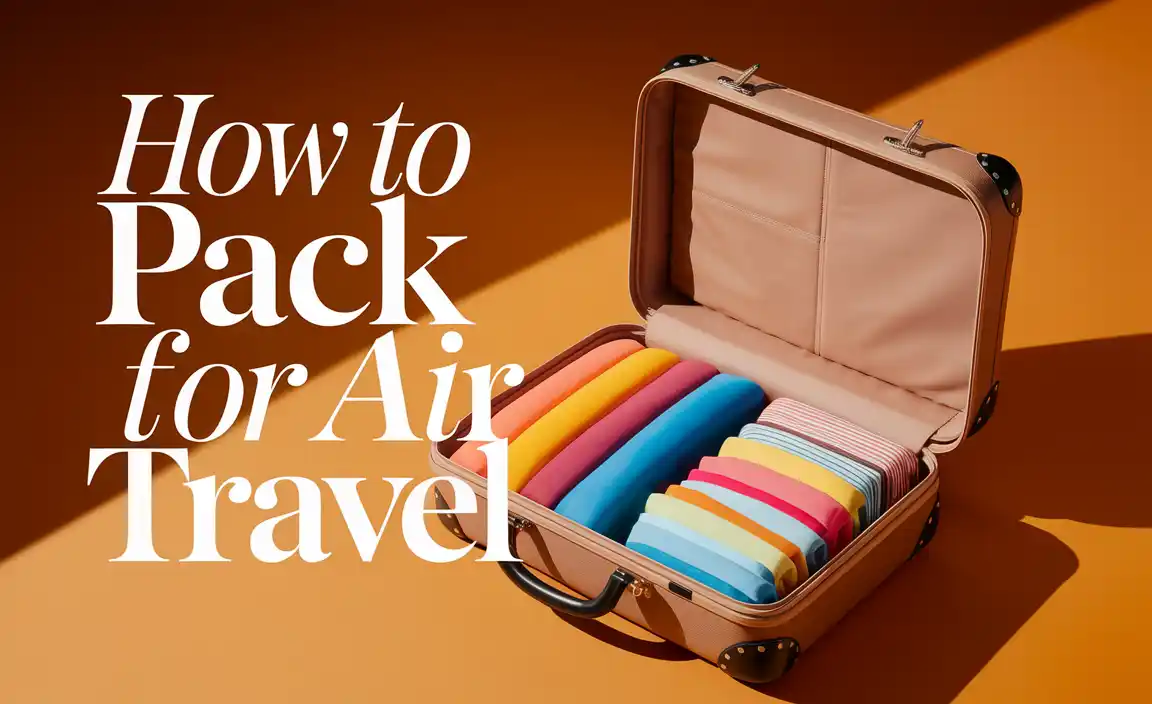Planning a Beirut road trip base is achievable! This guide offers simple, step-by-step advice for choosing your starting point, packing smart, and navigating smoothly. Get ready for an adventure with confidence and comfort, knowing you’re prepared.
Planning a road trip can feel like a big undertaking, especially when you’re heading somewhere as vibrant and rich with history as Beirut. You might be wondering where to even begin with logistics, what to pack, and how to make sure your journey is comfortable and stress-free.
It’s a common feeling, but don’t worry! This guide is here to break down the essentials of setting up Beirut as your road trip base. We’ll cover everything you need to know, from essentials to packing, ensuring your adventure is exciting and smooth. Let’s dive into making your Beirut road trip a fantastic experience!
Why Beirut is the Perfect Road Trip Base
Beirut, often called the “Paris of the Middle East,” offers a unique blend of history, culture, and modern energy. As a road trip base, it provides unparalleled access to diverse landscapes and experiences within Lebanon. From the historical heart of the city to the stunning mountains and ancient ruins scattered throughout the country, Beirut serves as an ideal starting point for exploring it all. Its central location gives you the freedom to venture out in multiple directions, making it a strategic and exciting choice for any road adventurer.
Accessibility and Connectivity
Beirut is Lebanon’s primary international gateway, with Rafic Hariri International Airport (BEY) being the main entry point for most travelers. This makes it incredibly convenient to fly in and pick up a rental car, or connect to onward travel. Within the city, you’ll find a wide range of car rental agencies, offering vehicles suited for different needs and budgets.
The city’s infrastructure, while sometimes bustling, is well-connected to major highways leading out to various regions of Lebanon. This connectivity ensures that once you have your “base” sorted in Beirut, the rest of the country is within easy reach.
Cultural Hub and Amenities
Beyond its logistical advantages, Beirut itself is a destination worth exploring. It’s a city that buzzes with life, offering incredible food, vibrant nightlife, historical sites like the National Museum of Beirut, and beautiful corniche walks.
Having Beirut as your base means you have access to excellent hotels, guesthouses, and apartments for accommodation, as well as a vast array of restaurants and shops for supplies. This cultural richness means you can immerse yourself in local life before or after your excursions, adding another layer of enjoyment to your trip.
Essential Planning Steps for Your Beirut Road Trip Base
Setting up Beirut as your road trip base involves a few key planning steps. These will ensure you have a smooth start and can focus on enjoying the journey.
Step 1: Choose Your Accommodation Wisely
Your accommodation in Beirut will be your home base. Consider its location, amenities, and how it fits your travel style.
Location: Staying in areas like Achrafieh, Saifi Village, or Hamra offers good access to city attractions and main roads leading out of Beirut. Proximity to major routes can save you time when heading out on day trips.
Type of Accommodation:
Hotels: Offer comfort, service, and often convenient amenities like breakfast and Wi-Fi.
Apartments/Airbnb: Provide more space, a kitchen for self-catering (which can be budget-friendly), and a more local feel.
Hostels: A great option for budget travelers looking to meet others, though they may offer less privacy.
Parking: If you plan to rent a car, inquire about parking availability at your chosen accommodation. Secure parking is highly recommended.
Step 2: Secure Your Transportation
Having reliable transport is crucial for a road trip.
Car Rental:
Booking: Book your rental car in advance, especially during peak travel seasons. Compare prices from various companies online.
Vehicle Type: Choose a vehicle that suits the terrain you plan to explore. For mountainous regions, a more robust vehicle might be preferable, though most of Lebanon’s main roads are well-maintained.
Rental Requirements: Ensure you have the necessary documents, including your international driving permit (IDP) if required, and check insurance options. You can find information on international driving permits from official sources like the International Driving Permit website.
Navigation:
GPS: Most rental cars come with GPS, or you can use your smartphone.
Offline Maps: Download offline maps for Lebanon using apps like Google Maps or Maps.me, as mobile signal can be spotty in some rural areas.
Step 3: Plan Your Itinerary (Flexibly)
While Beirut is your base, having a general idea of where you want to go is helpful.
Day Trips vs. Overnight Stays: Decide if you want to do various day trips from Beirut or plan a few overnight excursions to further destinations.
Key Destinations: Popular road trip destinations from Beirut include:
Byblos (Jbeil): Ancient Phoenician city.
Baalbek: Roman ruins, a UNESCO World Heritage site.
Jeita Grotto: Stunning cave system.
Harissa: Home to the Shrine of Our Lady of Lebanon.
Beiteddine Palace: Beautiful 19th-century palace.
Cedars of God: Ancient cedar forest.
Travel Times: Research approximate driving times between destinations. Lebanese roads can be winding, and traffic, especially around Beirut, can sometimes cause delays.
Flexibility: It’s a road trip, so embrace spontaneity! Don’t overschedule; allow time for unexpected discoveries.
Step 4: Pack Smart for Comfort and Convenience
Packing right makes a significant difference, especially if you’re traveling with family or need extra support.
Clothing: Pack layers as weather can vary, especially between the coast and mountains. Include comfortable walking shoes.
Essentials for the Road:
Water and Snacks: Crucial for longer drives.
First-Aid Kit: Include any personal medications.
Sun Protection: Sunscreen, hats, and sunglasses.
Power Bank: To keep your devices charged.
Entertainment: Music, podcasts, or books for the journey.
Special Considerations for Comfort:
Adult Diapers/Incontinence Products: For peace of mind during long drives or when facilities might be limited, especially for those managing incontinence for health reasons. Opt for absorbent, comfortable products designed for all-day wear. Brands known for reliable absorption and discreetness can make a big difference in comfort and confidence.
Child Diapers: If traveling with children, ensure you have an ample supply of diapers, wipes, and changing essentials. Pack a portable changing mat and disposable bags for easy cleanup on the go.
Navigating Lebanese Roads: Tips for Beginners
Driving in Lebanon can be an adventure in itself. Here are some tips to help you navigate with confidence.
Understanding Local Driving Culture
Lebanese driving can be perceived as assertive. Expect a lot of horn usage, which often signals presence rather than aggression. Drivers may merge quickly and anticipate maneuvers.
Key Things to Watch For:
Motorcycles and Scooters: They are common and often weave through traffic. Be mindful of their presence.
Pedestrians: While sidewalks exist, pedestrians may cross roads at unexpected points.
Road Conditions: While main highways are generally good, smaller intercity roads and mountain routes can be winding, narrow, and may have potholes. Drive cautiously.
Speed Limits: Be mindful of local speed limits, though they may not always be strictly enforced.
Practical Driving Tips
Drive Defensively: Assume other drivers might not see you or might make unexpected moves.
Use Your Signals: Clearly indicate your intentions.
Be Patient: Traffic can be heavy, particularly around Beirut. Allow extra travel time.
Fuel Stations: Petrol stations are readily available in most areas. Many require you to pay inside first before filling up.
Tolls: Some highways may have tolls. Keep some small cash denominations handy.
Safety First
Secure Your Vehicle: Always lock your car and avoid leaving valuables visible.
Night Driving: Consider avoiding driving at night in remote or unfamiliar areas if possible, as road conditions can be harder to see, and lighting might be poor.
Emergency Contacts: Have local emergency numbers saved in your phone.
Essential Packing List for Your Beirut Road Trip Base
Here’s a comprehensive list to help you pack effectively for your Beirut-based road trip.
Documents and Essentials
Passport and Visa (if applicable)
Driver’s License and International Driving Permit
Car Rental Documents
Flight Tickets/Confirmations
Accommodation Reservations
Travel Insurance Information
Emergency Contact List (local and home)
Copies of important documents (stored separately from originals)
Local Currency (Lebanese Lira) and some USD (widely accepted for larger purchases)
Credit/Debit Cards
Clothing and Personal Items
Comfortable everyday clothing
Layering pieces (sweaters, light jackets)
Modest clothing for visiting religious sites (shoulders and knees covered)
Swimsuit (if visiting coastal areas or pools)
Comfortable walking shoes or hiking boots
Sandals or flip-flops
Hat and sunglasses
Personal toiletries
Sunscreen
Insect repellent (especially for evenings or rural areas)
Personal medications
Hand sanitizer
For the Road and Comfort
Reusable water bottle
Snacks for the car
First-aid kit
Portable phone charger/power bank
Car phone mount
Downloaded offline maps
Camera and accessories
Small backpack or day bag
Travel pillow and blanket (for longer drives)
Incontinence Products:
Adult Diapers (various absorbency levels if needed)
Wipes
Disposal bags
Child Travel Necessities (if applicable):
Child Diapers
Wipes
Changing mat
Baby food/formula and containers
Bottles/sippy cups
Comfort items (blanket, toy)
Exploring Beyond Beirut: Sample Itineraries from Your Base
With Beirut as your hub, you can experience a wide range of Lebanese wonders. Here are a few ideas for day trips and short excursions.
Itinerary 1: Historical North (Day Trip)
Morning (8:00 AM): Depart from Beirut.
Late Morning (9:30 AM): Arrive in Byblos (Jbeil). Explore the ancient port, castle, and old souks. Enjoy a coffee by the harbor.
Lunch (12:30 PM): Have lunch in Byblos, perhaps trying some fresh seafood.
Afternoon (2:00 PM): Drive towards Chouwen Reservoir or Faqra Ruins for scenic views and ancient Roman temples (depending on time and interest). You could also visit Batroun for its charming old town and Phoenician sea wall.
Late Afternoon (4:00 PM): Begin the drive back to Beirut.
Evening (5:30 PM onwards): Arrive back in Beirut.
Itinerary 2: Mountain Majesty and Ancient Wonders (Day Trip)
Morning (8:00 AM): Depart from Beirut towards the mountains.
Late Morning (9:30 AM): Visit the magnificent Jeita Grotto. Allow ample time to explore both the upper and lower galleries.
Lunch (12:30 PM): Head to Harissa for panoramic views and lunch at a restaurant overlooking Jounieh Bay.
Afternoon (2:00 PM): Visit the Shrine of Our Lady of Lebanon in Harissa.
Late Afternoon (3:30 PM): Drive back to Beirut, enjoying the scenic coastal road.
Evening (5:00 PM onwards): Arrive back in Beirut.
Itinerary 3: Roman Grandeur (Day Trip or Overnight)
Morning (7:30 AM): Depart from Beirut for Baalbek. This is a longer drive (approx. 2 hours without stops).
Late Morning (9:30 AM): Arrive in Baalbek to explore the awe-inspiring Roman temples: Jupiter, Bacchus, and Venus. Consider hiring a local guide to fully appreciate the history. For more about Baalbek, the UNESCO World Heritage Centre offers valuable details.
Lunch (1:00 PM): Enjoy lunch at a restaurant in Baalbek.
Afternoon (2:30 PM): You can either start your journey back to Beirut, or if time permits and you wish for a two-day trip, consider visiting the Ksara Winery nearby or heading further to Anjar (another UNESCO site with ruins from the Umayyad period).
Late Afternoon/Evening (4:30 PM onwards): Drive back to Beirut. If opting for an overnight stay, you would continue exploring and then return the next day.
Note: Driving times are estimates and can vary significantly based on traffic and road conditions.*
Table: Quick Reference for Road Trip Essentials
| Category | Items to Pack | Notes |
| Documents | Passport, IDP, Driving License, Car Rental Docs, Insurance, ID copies | Keep physical and digital copies separate. |
| Vehicle & Navigation| GPS device/app, Offline Maps, Phone Mount, Car Charger, Basic Toolkit | Ensure your phone is fully charged before departing. |
| Comfort & Safety | First-Aid Kit, Sunscreen, Hats, Water Bottles, Snacks, Hand Sanitizer, Insect Repellent | Stay hydrated and protected from the sun. |
| Personal Care | Prescription Medications, Toiletries, Wipes, Adult Incontinence Products (if needed), Child Diapers (if applicable), Changing Mat | Pack discreetly and ensure comfort and dignity. Adequate supply is key for smooth travel. |
| Clothing | Layers, Comfortable Shoes, Modest Attire for sites | Weather can change quickly, especially in mountainous areas. |
| Miscellaneous | Camera, Power Bank, Small Backpack, Cash (small denominations) | Be prepared for unexpected expenses and photo opportunities. |
Conclusion
This Beirut road trip base guide has equipped you with the essential planning tools to embark on an incredible journey through Lebanon. From choosing your ideal accommodation and securing reliable transportation to packing smart and understanding local driving nuances, you’re well on your way to a memorable adventure.
Beirut offers a dynamic launchpad for exploring ancient history, breathtaking natural beauty, and vibrant culture. Remember to embrace the spirit of exploration, stay flexible, and prioritize comfort and safety.
Frequently Asked Questions
Q1: Is it safe to drive in Beirut and Lebanon for a road trip?
A1: While driving in Lebanon can be more assertive than in some Western countries, it is generally safe for visitors with defensive driving skills and awareness. Major routes are well-maintained. It’s advisable to be cautious, especially in city traffic and on winding mountain roads.
Q2: What type of car is best for a road trip around Lebanon?
A2: For most popular routes, a standard compact car or sedan is sufficient. If you plan extensive travel to more remote or mountainous areas, a small SUV or a car with higher ground clearance might offer more comfort and capability.
Q3: Do I need an International Driving Permit (IDP) for Lebanon?
A3: It is highly recommended to have an International Driving Permit (IDP) along with your valid home country driver’s license. While some rental agencies may rent to you with just your home license, an IDP can prevent issues with local authorities and is often required by insurance.
Q4: How is the fuel availability and cost in Lebanon?
A4: Fuel stations are widely available in cities and along major highways. Fuel prices can fluctuate and are generally comparable to European prices. You’ll typically pay at a kiosk before or after filling up.
Q5: What are the main road signs and signals like in Lebanon?
A5: Most road signs are in Arabic and French, and often have universal symbols. Familiarize yourself with common signs. Be aware that traffic signals are present, but local driving practices sometimes mean drivers anticipate actions rather than waiting for a green light if it’s clear.
Q6: Is it easy to find places to stay if I decide to travel beyond day trips from Beirut?
A6: Yes, Lebanon offers a range of accommodation options outside of Beirut, from hotels and guesthouses in larger towns like Byblos and Batroun to charming boutique stays in mountain villages. Booking in advance is recommended, especially during peak season.
Q7: What are some essential items for traveling with children on a road trip in Lebanon?**
A7: Beyond child diapers and wipes, pack plenty of snacks, drinks, entertainment (books, toys, tablets with downloaded content), a portable changing mat, and any comfort items like a beloved blanket or stuffed animal. Ensure child car seats are properly installed if renting a vehicle that doesn’t include them.






